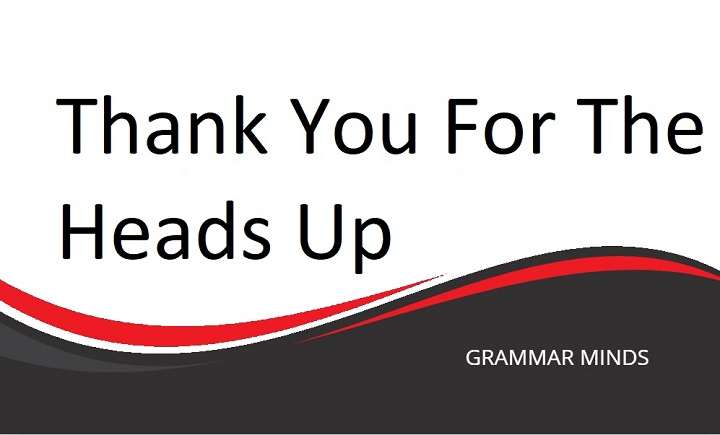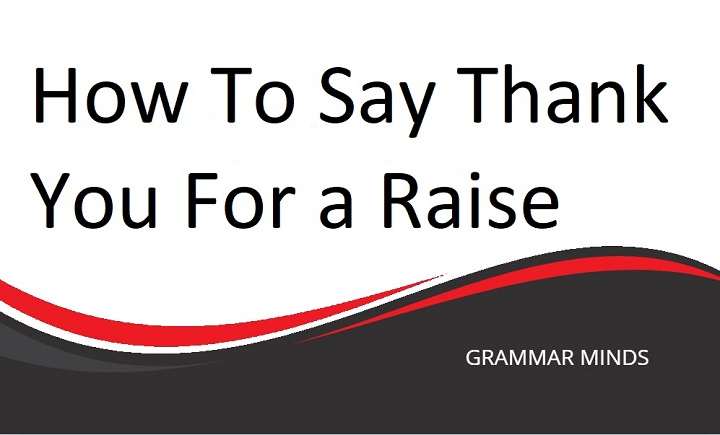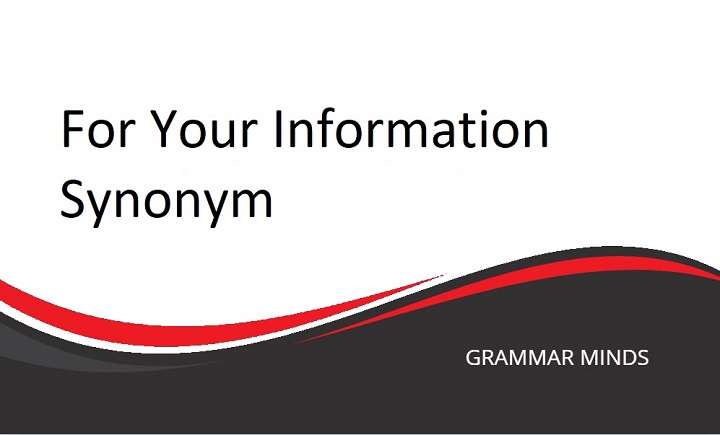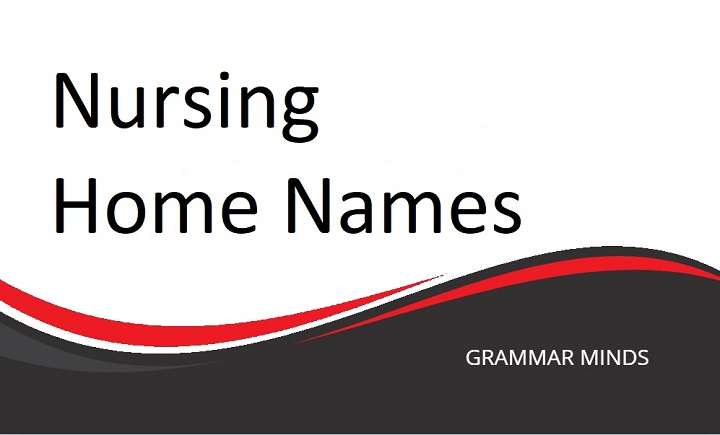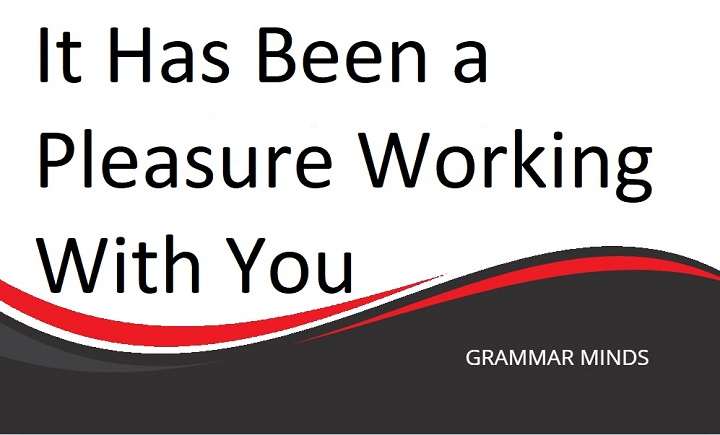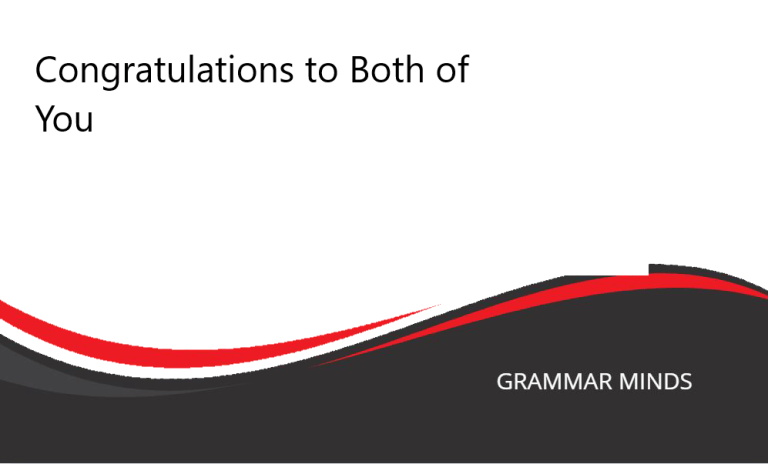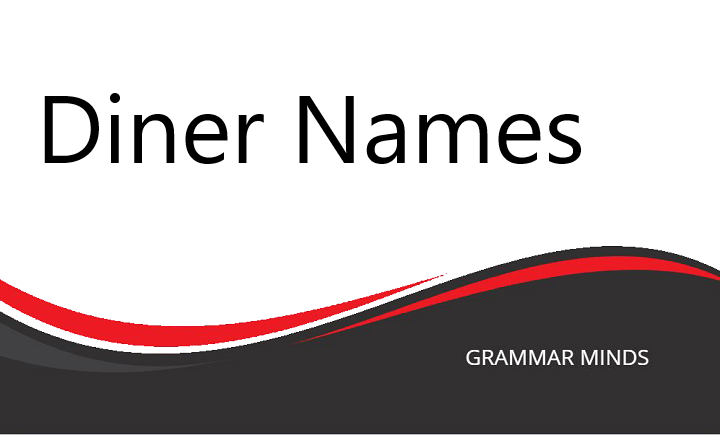In the fast-paced world of communication, clarity and politeness go a long way. One common expression that many people use to acknowledge helpful information is, “Thank you for the heads up.” This phrase is widely understood and accepted, but as with any phrase, overuse can lead to it feeling a bit stale or repetitive.
Do you find yourself using the phrase “thank you for the heads up” repeatedly? Have you grown tired of this expression when communicating in your professional or personal life?
Don’t worry! We’ve compiled a handy list of alternative phrases that you can use to mix things up and sound more varied in your conversations.
Other Ways to Say “Thank You for the Heads Up”
Variety is the spice of life, and when it comes to communication, switching up your phrases can make you sound more engaged, thoughtful, and professional. Below are ten alternatives to “thank you for the heads up” that you can incorporate into your conversations, whether formal or informal.
- I appreciate the information.
- Thanks for the update.
- Good looking out!
- Thanks for keeping me in the loop.
- Thank you for the alert.
- I’m grateful for the notice.
- That’s good to know, thanks.
- Thanks for bringing this to my attention.
- I appreciate the warning.
- Thanks for letting me know.
Key Notes
The phrase “thank you for the heads up” is grammatically correct and suitable for both formal and informal situations. However, it can sometimes feel a bit basic or overused, especially in professional settings where diverse vocabulary helps convey thoughtfulness and consideration.
- “I appreciate the information” is great for formal situations, especially in business emails or meetings where you need to maintain professionalism.
- “Thanks for the update” can be used in both formal and informal settings, making it a versatile alternative.
- “Good looking out!” works well in informal contexts, especially among friends or coworkers who have a casual relationship.
- Keep reading to discover how to use these phrases in both formal and informal situations, and see real-life examples of how they can be applied effectively.
I Appreciate the Information
Usage:
If you’re looking for a more formal way to say “thank you for the heads up,” try using “I appreciate the information.” This alternative adds a touch of sophistication, making it ideal for professional environments such as emails or meetings. It’s especially useful when you’re acknowledging someone’s effort to inform you about something important.
Example (in an email):
Dear Sarah,
Thank you for your assistance. I appreciate your efforts in providing the necessary details and look forward to your response.
I appreciate the information.
Best regards,
John Doe
Thanks for the Update
Usage:
A versatile phrase that works in both formal and informal settings is “Thanks for the update.” It’s straightforward, polite, and can be used in conversations with coworkers, friends, or even family members.
Example (in conversation):
Hey Mark,
Thanks for the update on the project. I’ll make sure to follow up as needed.
Best,
Lisa
Good Looking Out!
Usage:
When communicating with friends or colleagues in an informal setting, “Good looking out!” is a great alternative to “thank you for the heads up.” It conveys appreciation in a casual, friendly way, often used when someone gives you helpful information or a reminder that you might not have thought of on your own.
Example (in conversation):
Hey Jane,
Good looking out! I totally forgot about the meeting tomorrow. I’ll make sure to be there on time.
Talk to you soon,
Mike
Thanks for Keeping Me in the Loop
Usage:
If you’re in a professional setting and someone provides ongoing updates or information, “Thanks for keeping me in the loop” is an excellent way to acknowledge their effort. This phrase works especially well in project management or collaborative team environments where regular communication is crucial.
Example (in an email):
Hi Rachel,
Thanks for keeping me in the loop on the progress of the marketing campaign. I appreciate the constant updates, and I’ll ensure everything is aligned on my end.
Best regards,
David
Thank You for the Alert
Usage:
If you want to express gratitude in a more formal and urgent manner, “Thank you for the alert” is an appropriate phrase to use. This can be especially effective when someone informs you about a potential problem or risk.
Example (in a message):
Hi Simon,
Thank you for the alert regarding the system outage. I’ve notified the team, and we’ll work on getting it resolved as soon as possible.
Best regards,
Emily
I’m Grateful for the Notice
Usage:
Another formal alternative is “I’m grateful for the notice.” This phrase adds a sense of politeness and sincerity, making it ideal for written correspondence in professional settings where you want to show appreciation for someone taking the time to inform you.
Example (in an email):
Dear Mr. Thompson,
I’m grateful for the notice regarding the upcoming policy changes. I’ll review the materials you’ve provided and prepare accordingly.
Sincerely,
Alicia Davis
That’s Good to Know, Thanks
Usage:
In casual settings with friends or coworkers, you can use “That’s good to know, thanks” as an easy, conversational way to acknowledge the information someone provides. It’s friendly, approachable, and makes the other person feel appreciated without sounding overly formal.
Example (in conversation):
Hey Anna,
That’s good to know, thanks! I’ll keep that in mind for next time.
See you later,
Jake
Thanks for Bringing This to My Attention
Usage:
When someone alerts you to an issue or provides you with important information, “Thanks for bringing this to my attention” is a polite and professional way to acknowledge their effort. It’s suitable for both formal emails and face-to-face conversations.
Example (in an email):
Dear Susan,
Thanks for bringing this to my attention. I’ll review the details and get back to you with a solution as soon as possible.
Best regards,
Oliver
I Appreciate the Warning
Usage:
When someone gives you a heads-up about a potential problem or risk, you can express gratitude by saying, “I appreciate the warning.” This phrase works well in both formal and informal contexts, especially when the information is crucial to avoiding an issue.
Example (in conversation):
Thanks, Ben! I appreciate the warning about the traffic on that route. I’ll take a different road.
Talk soon,
Kelly
Thanks for Letting Me Know
Usage:
A very simple yet effective way to express appreciation is by saying, “Thanks for letting me know.” This phrase works well in almost any situation—whether formal or informal—and can be used in emails, text messages, or face-to-face conversations.
Example (in a message):
Hi Alex,
Thanks for letting me know about the schedule change. I’ll make sure to adjust my plans accordingly.
Best,
Taylor
Is It Correct to Say “Thank You for the Heads Up”?
Yes! “Thank you for the heads up” is grammatically correct and suitable for both formal and informal settings. It’s a versatile phrase that can be used in professional emails, conversations with colleagues, or casual chats with friends. While it works perfectly fine in various contexts, using synonyms like the ones we’ve listed above will help you mix up your language and sound more varied in your communication.
You can also try slight variations of this phrase, such as:
- Thanks for the heads-up.
- Thank you for giving me the heads-up.
- I appreciate the heads-up.
Also Read
School Name Ideas: How to Choose the Perfect Name for Your Institution
In conclusion, “thank you for the heads up” is a perfectly acceptable and grammatically correct phrase, whether you’re using it in a formal or informal setting. However, the alternative phrases provided in this article will help you diversify your vocabulary and communicate more effectively in different contexts.
Whether you choose to say “I appreciate the information” or “Good looking out,” having a range of phrases at your disposal will make your communication more engaging and thoughtful.

